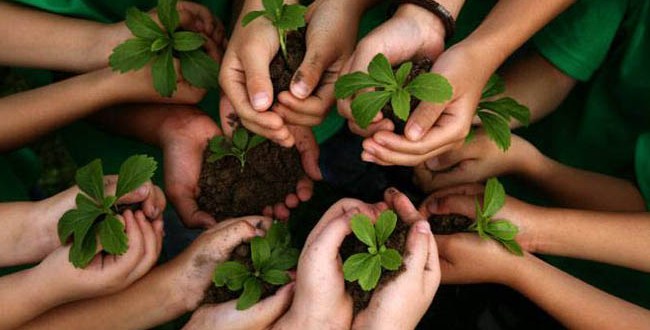Many youngsters today are concerned about the environment and actively participate in tree planting campaigns. Keeping in view the ongoing Van Mahotsav in the first week of July, Orissa POST asked some youngsters how they plan to celebrate the week-long green festival.
The aim of Van Mahotsav is to encourage the masses to work for forest conservation and tree planting. The Van Mahotsav event was launched in 1950 by then Union Agriculture Minister KM Munshi.
Baijayanti Prasad, a student of social communication in Bhubaneswar, says, “These days, people are more focused on installing air-conditioners than tree plantation. Celebrating Van Mahotsav just for a day may not help to combat environmental degradation.”
Baijayanti recounts, “One day, my friend and I were going to a restaurant near Chandrasekharpur for lunch. When we reached Kalinga hospital chowk, we stopped at the traffic signal. Interestingly, our scooty was the only vehicle at the zebra crossing at the time. There seemed to be no one on the road. However, when I looked back, I saw many people sheltering from the sun under a tree. People don’t plant trees which protect us from the scorching sun. Instead, they complain about the hot weather and humidity. Don’t we all have a responsibility to do something about this?”
“Van Mahotsav should be organised every day, every month and everywhere. If one person plants a tree in a day, then it would be a great thing for the survival of the mankind. Celebrating the festival for a day or week is just not enough because on other days people build edifices, fell trees, and add to the pollution by using vehicles and ACs,” she adds.
Vedvyas Dash from Sambalpur says, “In our school days we observed Van Mahotsav every year. Then, we had no knowledge about the imperative necessity of a clean environment but we observed the day because we were asked to do so by our teachers. Students in my class used to be happy because they could put away their books for the day. We used to spend time with friends planting saplings. Unfortunately, now when I know the value of a clean environment, I hardly get time to plant a seedling or a plant. This year, I have made a pledge to plant at least 20 flower plants in my garden and take care of them well.”
“Yes, I spend a lot of time on my mobile. But it does not mean that I am not interested in greening the environment,” argues Alisha Mishra, an IT professional. Her (late) father was a herbalist who had spent years researching medicinal plants. Alisha adds, “Come July and we see postings about Van Mahotsav on social media sites and then our love for greenery emerges. But, from the very next day, we get busy with our hectic life. I know this should not happen. Our love for plants should continue throughout the year.”
Asked when she had last planted a sapling, Alisha said, “I will not lie. Four years ago, I was invited by a friend’s NGO to celebrate Van Mahotsav and then I planted a mango sapling. Of course, I also paid an amount to the NGO to take care of the plant. Recently, I visited the place and found the tree. It was an emotional and satisfying moment for me.”
“Just planting a sapling is not enough. Once it is planted, we should ensure that it is taken care of until it grows into a tree,” says Pushpak Rout from Bhubaneswar. When did he last plant a sapling? Pushpak frowned and answered, “Bhai, I live in an apartment and don’t have the land to plant a tree. I can grow only a shrub or, at best, a herb in a vase. But once it grows, I need to take it outside to plant it somewhere on the land. Again, in cities, which have become concrete jungles over the years, you hardly find a place to plant. When I was living in my village, we used to plant trees on the pond embankment. Unfortunately, these days you hardly find a pond in a city, and if you find one, you will also find skyscrapers around it. Then where can I put my trees?”
Himanshu Guru, OP






































